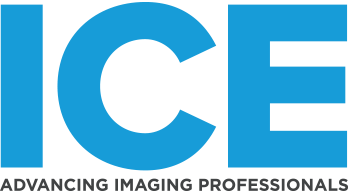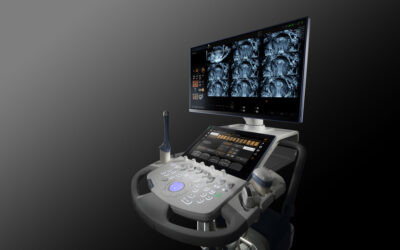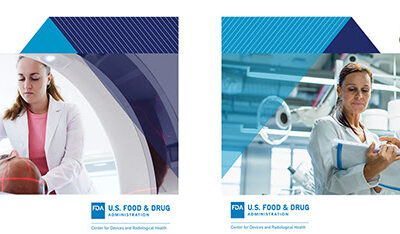
By: Stephen M. Hahn, M.D., Commissioner of Food and Drugs, Peter Marks, M.D., Ph.D., Director, Center for Biologics Evaluation and Research and Janet Woodcock, M.D., Director, Center for Drug Evaluation and Research
The coronavirus (COVID-19) pandemic is an unprecedented event in modern history and has required an extraordinary response around the world. As is true with any public health emergency, there’s tremendous interest among all parties to identify and implement potential short- and long-term solutions.
Quickly after the emergence of this virus, the U.S. Food and Drug Administration began working directly with federal health partners, academia and industry to advance medical countermeasures against COVID-19. Given the urgent nature of the pandemic, the FDA launched a new program called the Coronavirus Treatment Acceleration Program (CTAP) to move new treatments to patients as soon as possible, while at the same time finding out whether they are helpful or harmful. So far, 72 clinical trials of potential therapies for COVID-19 are underway with FDA oversight.

Stephen M. Hahn, M.D.
Studies like these help us find out if products work against COVID-19 and assess toxicity. The FDA does not conduct these studies, researchers do, and then they send their findings to us. Both the pharmaceutical industry and academic researchers have submitted many innovative and well-designed studies for prevention and treatment of COVID-19. The FDA has streamlined its review and advice process to get studies started as quickly as possible.
For example, one study includes direct-acting antivirals. Antiviral drugs keep viruses from multiplying and are used to treat many virus infections (such as HIV, Herpes, Hepatitis C, and influenza). Early on, the FDA, National Institutes of Health, and industry worked together facilitate the implementation of a “master protocol” that can be used in multiple clinical trials and allows for the study of more than one promising new drug for COVID-19 at a time. The first results from one of the trials—with an antiviral that has shown some potential in the laboratory—may be available in the weeks or months ahead. Multiple antiviral drugs are currently in clinical trials for COVID-19 worldwide.
Another treatment under investigation is aimed at tamping down the body’s own immune reaction to the virus, in cases where the body’s reaction basically goes overboard and starts attacking the patient’s own organs. The FDA is working with drug researchers to implement clinical trials for drugs that are designed to decrease the inflammation of the lungs that may be related to COVID-19. A number of these trials are enrolling now, including programs that are testing products—such as those called Interleukin-6 (IL-6) inhibitors and Janus kinase inhibitors, which are approved to treat various conditions, including rheumatoid arthritis.
Another promising approach for treatment is based on the observation that antibodies in blood plasma taken from people who have previously had COVID-19 may help those currently infected with the virus fight the infection. The FDA is helping to facilitate the collection and development of a product called convalescent plasma, an antibody-rich product made from blood donated by people who have recovered from the disease caused by the virus. Prior experience with respiratory viruses and limited data that have emerged from China suggest that convalescent plasma has the potential to lessen the severity or shorten the length of illness caused by COVID-19. It is important that we evaluate this potential therapy in the context of clinical trials as well as facilitate emergency access for individual patients, as appropriate. To this end, and over a very short time period, more than 1,600 sites and over 2,100 physician investigators nationwide have signed on to participate in the Mayo Clinic-led expanded access protocol to date, which the FDA helped facilitate. A number of clinical trials are also taking place to evaluate the safety and efficacy of convalescent plasma and the FDA has granted numerous single-patient emergency investigational new drug applications as well. As this work moves forward, the key to ensuring the availability of convalescent plasma to those in greatest need is getting fully recovered COVID-19 patients to donate plasma. The FDA launched a new webpage to help guide recovered COVID-19 patients to local blood or plasma collection centers to discuss their eligibility and potentially schedule an appointment to donate. One donation has the potential to help up to four patients.

Peter Marks, M.D, Ph.D.
Additionally, the plasma from people who have recovered can be used to manufacture a biological product called hyperimmune globulin, which also has the potential to treat patients with COVID-19. These products are easier to use than plasma because they can be given without matching a recipient’s blood type. We understand that hyperimmune globulin will be ready for clinical trials very soon. If successful in the trials, these products could potentially make this disease less life-threatening and could reduce the risk of getting infected for first responders and essential front-line workers.
We should start to receive data from a variety of clinical studies of different types of products soon. When we do, we intend to use a flexible and innovative approach. Once we observe favorable results, we intend to be very proactive about patient access.
We urgently need treatments that will make this disease less life-threatening. Patients with the disease need more treatment options, depending on the disease’s severity and stage. First responders and essential front-line workers urgently need medicines to reduce the risk of getting infected. The FDA has worked hard to facilitate access to promising therapeutics for sick patients through our Expanded Access program, while data from clinical trials is generated. We are also working with industry to anticipate and address complex manufacturing challenges—for example, to reduce disruption to the supply of medications.
Importantly, the FDA is also actively supporting efforts to facilitate vaccine development, by working with vaccine developers and other researchers and manufacturers to help expedite the development and availability of vaccines to prevent COVID-19. Until a preventive vaccine is approved, we need medicines to bridge the gap.

Janet Woodcock, M.D.
Looking ahead, we are also quickly triaging a second wave of potential products to treat COVID-19 based on scientific merit. The strongest proposals will go to the front of the line. Our overriding objective is to find effective medicines that don’t cause more harm than good as soon as possible.
The FDA has experts standing ready to continue to work with product developers of products to prevent and treat COVID-19. We encourage product developers to take full advantage of our Pre-IND Consultation Program and the INTERACT program. These programs provide expert advice to navigate scientific and regulatory challenges and expedite product development.
The FDA is also a partner in the NIH and the Foundation for NIH effort to develop a national strategy for a coordinated research response to the pandemic. The planned Accelerating COVID-19 Therapeutic Interventions and Vaccines (ACTIV) partnership will aim to develop a collaborative framework for prioritizing vaccine and drug candidates, streamline clinical trials, coordinate regulatory processes, and/or leverage assets among all partners to rapidly respond to the COVID-19.
We’re all in this together and will continue to do everything we can to expedite the development of innovative prevention and treatment approaches. The FDA will use science and data to drive our decisions and will remain steadfast in our efforts to bring treatments to patients.







